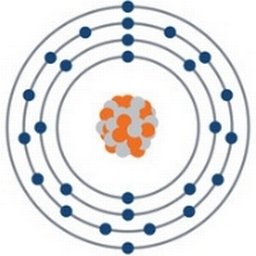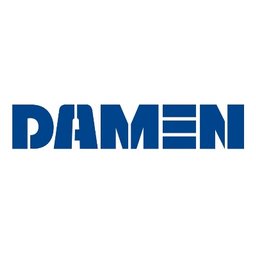Work Activities
We are seeking a motivated PhD - student to join our team working on the theory of computing and learning in physical systems, as part of a joint theoretical/experimental program on Smart Materials for Information Processing.
With increasing demands on computing and its accompanying energy consumption, there is a pressing need for alternatives to conventional computing hardware. In this project you will investigate and develop novel design and learning strategies for computing based on networks of bistable physical elements. This work is based on recent breakthroughs in our groups. The Van Hecke group has developed techniques for in-materia computing using interacting material bits named hysterons1,2, and the Stern Group has introduced strategies for self-learning materials inspired by ideas from machine learning and neuroscience3,4. Here we aim to join these ideas, in the context of networks of multistable electronic components as developed by experimental colleagues at Twente University5-7. This is a highly ambitious program with 3 PhD - positions (one at AMOLF, two at Twente), in which we aim to establish an exciting new paradigm for computing and learning, and demonstrate it in the lab.
We are seeking a motivated PhD - student to join our team working on the theory of computing and learning in physical systems, as part of a joint theoretical/experimental program on Smart Materials for Information Processing.
With increasing demands on computing and its accompanying energy consumption, there is a pressing need for alternatives to conventional computing hardware. In this project you will investigate and develop novel design and learning strategies for computing based on networks of bistable physical elements. This work is based on recent breakthroughs in our groups. The Van Hecke group has developed techniques for in-materia computing using interacting material bits named hysterons1,2, and the Stern Group has introduced strategies for self-learning materials inspired by ideas from machine learning and neuroscience3,4. Here we aim to join these ideas, in the context of networks of multistable electronic components as developed by experimental colleagues at Twente University5-7. This is a highly ambitious program with 3 PhD - positions (one at AMOLF, two at Twente), in which we aim to establish an exciting new paradigm for computing and learning, and demonstrate it in the lab.
We offer a PhD - position that is focused on the theoretical understanding of networks of these bistable components. The project will involve analytical and computational modelling, as well as supporting the design of experiments to be carried out by the two PhD - students in Twente. Key questions include: How to design networks of bistable elements for targeted computational tasks, and what is the space of possible computations? How do noise and experimental details impact the design and computing power? Can we use plasticity in the physical elements to materialize adaptive computing? Can we implement material learning strategies in our networks? With this research, we aim to redefine physical computation, blurring the lines between materials and computers.
To get an idea of our work, see:
[1] Kwakernaak and van Hecke, Counting and Sequential Information Processing in Mechanical Metamaterials, PRL 130 268204 (2023)
[2] Liu, Teunisse, Korovin, Vermaire, Jin, Bense and van Hecke, Controlled Pathways and Sequential Information Processing in Serially Coupled Mechanical Hysterons, PNAS 121, e2308414121 (2024).
[3] Stern and Murugan, Learning without neurons in physical systems, Ann Rev Cond Matt Phys 14, 417 (2023)
[4] Dillavou, Beyer, Stern, Liu, Miskin and Durian, Machine learning without a processor: Emergent learning in a nonlinear analog network, PNAS 121, e2319718121 (2024)
[5] Kaspar, Ravoo, van der Wiel, Wegner and Pernice, The rise of intelligent matter, Nature 594, 345 (2021).
[6] Hilgenkamp and Gao, Exploring the path of the variable resistance, Science 373, 854 (2021).
[7] Zolfagharinejad, Büchel, Cassola, Kinge, Syed, Sebastian, van der Wiel, In-Materia Speech Recognition, arxiv.org/abs/2410.10434 (2024).
Qualifications
We seek candidates with a strong background in physics, electrical\mechanical engineering, materials science, or computer science with an interest in complex materials for computing and learning. Excellent candidates with training in any area of science or engineering will be considered. PhD candidates must meet the requirements for an MSc degree. Good verbal and written communication skills in English are required. Other advantageous qualities include experience with coding (Python\Matlab) and numerical methods, as well as familiarity with concepts in complex systems, physical memories or machine learning. We strongly believe in the benefits of an inclusive and diverse research environment, and welcome applicants with any background.
Work environment
The Mechanical Metamaterials group is led by Martin van Hecke, and focusses on emergent memory effects and computation in (meta)materials, with a recent focus on the physics of interacting bistable elements. The Learning Machines group is a relatively new group at AMOLF, led by Menachem (Nachi) Stern, and focuses on the development of fundamental understanding and theories regarding learning, from a physical perspective, under real world constraints.
Our group members work closely together with extensive support from us and AMOLF resources in all aspects of design, realization, and interpretation of computational models of mechanical metamaterials and physical learning systems. We have a strong focus on stimulating development of students in all professional aspects, as well as collaborations with other researchers at AMOLF and beyond. Moreover, we work closely together with international groups and companies. For more information, see https://amolf.nl/research-groups/learning-machines
Working conditions
- The working atmosphere at the institute is largely determined by young, enthusiastic, mostly foreign employees. Communication is informal and runs through short lines of communication.
- The position is intended as full-time (40 hours / week, 12 months / year) appointment in the service of the Netherlands Foundation of Scientific Research Institutes (NWO-I) for the duration of four years
- The starting salary is 2.968 Euro’s gross per month and a range of employment benefits.
- After successful completion of the PhD research a PhD degree will be granted at a Dutch University.
- Several courses are offered, specially developed for PhD-students.
- AMOLF assists any new foreign PhD-student with housing and visa applications and compensates their transport costs and furnishing expenses.
More information?
For further information about the position, please contact:
Prof. Dr. Martin van Hecke
E-mail: [email protected]
Dr. Menachem Stern
E-mail: [email protected]
Application
You can respond to this vacancy online via the button below.
Online screening may be part of the selection.
Diversity code
AMOLF is highly committed to an inclusive and diverse work environment: we want to develop talent and creativity by bringing together people from different backgrounds and cultures. We recruit and select on the basis of competencies and talents. We strongly encourage anyone with the right qualifications to apply for the vacancy, regardless of age, gender, origin, sexual orientation or physical ability.
AMOLF has won the NNV Diversity Award 2022, which is awarded every two years by the Netherlands Physical Society for demonstrating the most successful implementation of equality, diversity and inclusion (EDI).
Commercial activities in response to this ad are not appreciated.



